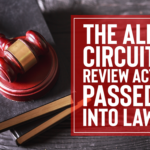Despite years of cracking down on Medicare and Medicaid fraud by the federal government, such fraud continues to proliferate. Given the massive size of the Medicare/Medicaid programs and their often decentralized operational systems – which work through a variety of state and federal administrative programs working in partnership with private organizations – the level of fraud may not be surprising. And, yet, every passing month brings shocking new revelations of brazen fraud. There was the Illinois businessman recently sentenced to over six years in prison after his company made $90 million off of claiming to provide hospice care for people who were not even dying, including telling a deaf and blind woman’s sister that the woman was dying of cancer when her condition was treatable. Then there were two women in Miami who were revealed to have run a $20 million fraudulent Medicare scheme after they were arrested after arriving from the Dominican Republic with $2.4 million in cash stuffed in diapers in their luggage. Such stories can make it easy to throw one’s hands up in the air and despair of ever getting a handle on Medicare/Medicaid fraud, but it is up to every one of us to keep an eye out for Medicare/Medicaid fraud and report it when we see it, and this includes patients who may be the first to notice. Furthermore, doing so can result in a huge financial reward.
Signs to Look For in Discovering Fraud
As a patient, you may feel at a disadvantage in detecting fraud. To be sure, medical bills are deeply complicated and confusing, and those who work in the healthcare industry do in theory at least have a better understanding of what is a normal charge and what is suspicious. But the people working on the inside of an organization may be the very ones perpetrating the fraud or may fear for their careers or future if they take steps to report fraud. Or they may simply be unaware that what they are doing is wrong, leaving it to patients to pursue justice on behalf of their fellow taxpayers.
While in many cases probably will not be sure that fraud is occurring prior to speaking to an attorney, here are some warning signs:
- Charges for services that you did not receive
- Charges for services that your doctor said were not necessary
- “Upcoded” charges for services that were above and beyond what you actually received
- Inflated charges
- Billing for brand-name drugs while providing generic drugs
- Resistance to answering questions related to your bill
Again, medical bills are often complicated regardless of whether fraud occurred, and you are within your rights as a patient to ask about the bill. If the answers you receive are insufficient or overly defensive, that is a warning sign fraud could be occurring.
How to Report Medicare/Medicaid Fraud
Healthcare patients who have knowledge of fraud should work with an experienced, whistleblower attorney to report Medicare fraud, and they will be rewarded with a $1,000 award if they successfully report to the Office of the Inspector General, but can be rewarded a much greater amount if they bring an FCA (False Claims Act) Claim, including up to 30% of the amount recovered by the federal government. The DOJ reports that whistleblower tips lead to billions of dollars in recoveries for Medicare and Medicaid fraud each year, resulting in large awards for whistleblowers that can reach into the millions of dollars.
Work with Experienced Whistleblowing Attorneys You Can Trust
At Kreindler & Associates, we understand that the decision to become a whistleblower is not an easy one. The government relies on courageous people like you to come forward with information that can stop harmful Medicare/Medicaid fraud. Our experienced healthcare fraud attorneys will work with you every step of the way to determine your appropriate course of action, protect you from retaliation, and collect your much-deserved reward. If you suspect that someone is committing Medicare/Medicaid fraud, contact us today for an evaluation of your allegations.




